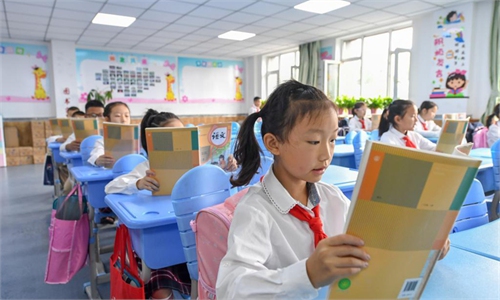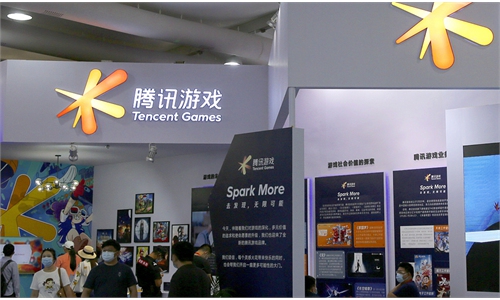COMMENTS / EXPERT ASSESSMENT
China’s tech regulation to promote deep integration of global economy

Illustration:Chen Xia/GT
Pascal Lamy, the former head of the World Trade Organization (WTO) who has long warned about the negative impacts of US efforts to "disengage" elements of its economy from China, recently said that China's regulatory efforts to increase controls within its technology sector add another "decoupling engine" to the global economy, according to Bloomberg reporting.It's no secret that the US' decoupling rhetoric and practice have long been a destabilizing factor in the global economy. Yet Lamy's view on China's regulation efforts is apparently based on an imperfect understanding of China's economic conditions. China's regulatory actions are based on maintaining a sustainable and stable economy in the face of both internal and external risks. A healthy Chinese economy will further contribute to global economic stability.
From the perspective of the domestic economy, in response to the unregulated growth and unchecked expansion of some platform behemoths, China has strengthened anti-monopoly supervision mechanisms and promoted the formation of a unified, open, and better managed competitive market system.
Looking at the international environment, especially adjustment to US macro policy may trigger a series of shocks to the global economy. In addition, the US continues to crackdown the development of China's high-tech fields. If the US escalate strangle on China's tech companies, this will also threaten the Chinese economy. To deal with these external risks, China needs to strengthen the competitiveness of domestic enterprises.
As the world's two largest economies, China and the US shoulder great responsibility to stabilize the global economy amid an ongoing global pandemic. It is understandable that adjustments to US economic policy take into account conditions in that country, such as inflation, unemployment, or economic overheating. China's adjustment in its economic policies aims to ensure stable economic operation and the normal operation of small and medium-sized enterprises (SMEs).
Strengthening anti-monopoly regulation and deepening the implementation of fair competition policies is to promote the formation of a fair competition market environment from the perspective of promoting high-quality development, and create a broad development space for various market participants, especially SMEs.
Guarding against commercial monopolies is not unique to China. On the contrary, the major developed economies across the world have engaged in anti-monopoly efforts. The unrestrained development of large enterprises will bring harm to the market, from the entry of small enterprises to the rights and interests of employees and consumers.
The former head of WTO also noted that China's regulatory efforts could stall the country's push to increase exports of digital services. It is a cloud over China economy.
Admittedly, as Chinese regulators tighten supervision on the technology sector, some tech giants with significant international influence will likely see decline in capital size. But this doesn't mean China will weaken its resolve in developing the broader digital economy. China has emphasized the priority to support digital economy in the 14th Five-Year Plan (2021-25). The government has issued special document supporting new business formats and new models of trade. The 2021 China International Fair for Trade in Services (CIFTIS) in Beijing is another sign that China will actively promote the development of the digital economy and trade.
The export of digital products or services in large part depends on the competitiveness of Chinese companies. The purpose of strengthening supervision is to ensure the businesses of all sizes can grow and compete in a fair and open market environment. The regulation will improve companies' competitiveness and exports, not stall them.
During the COVID-19 pandemic, China has been an important engine driving the recovery of the global economy. The high-quality development of the Chinese economy will bring impetus to the global economy, rather than decoupling it. If China's economy remains stable and dynamic, foreign investment will continue to flow. After these Chinese companies are regulated to prevent risks, it is possible that their international competitiveness will be enhanced, therefore, promoting the further integration of the global economy.
The author is a vice chairman of the China Society for World Trade Organization Studies in Beijing, and former president of the research institute of China's Ministry of Commerce. bizopinion@globaltimes.com.cn



